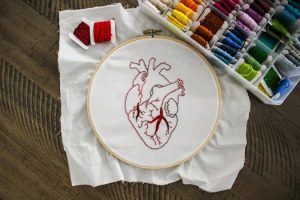Blockchain Fashion Platforms Ensure Transparent Production Processes
Over the years, the fashion industry has faced numerous challenges, from unethical production processes to counterfeit products. These issues have raised concerns among consumers about the transparency and sustainability of the fashion industry. In response, a new technology has emerged to address these concerns – blockchain. By leveraging blockchain, fashion platforms are now able to ensure transparent production processes from start to finish, providing consumers with the confidence that their purchases are ethical and of high quality. In this article, we will dive into the role of blockchain in the fashion industry and how it is revolutionizing the way fashion is produced and consumed.
The Need for Transparency in Fashion Production
The fashion industry has been a major contributor to pollution, carbon emissions, and unethical labor practices. According to a study by the United Nations Environment Programme, the fashion industry is responsible for 10% of global carbon emissions and consumes more energy than both aviation and shipping combined. These environmental impacts are compounded by the industry’s reliance on cheap labor in developing countries, leading to poor working conditions and low wages.
Consumers have become increasingly aware of these issues and are now demanding more transparency from fashion brands. They want to know where their clothes are coming from, who made them, and under what conditions. This has led to a rise in the popularity of sustainable and ethically-made fashion, but the lack of transparency in the industry makes it difficult for consumers to truly know the origins of their clothes.
Introducing Blockchain Technology in Fashion
Blockchain technology is a decentralized, digital ledger that allows for the secure recording and sharing of data. It was originally developed for the cryptocurrency, Bitcoin, but its potential applications have expanded far beyond that. In the fashion industry, blockchain is being used to track the movement of garments throughout the supply chain, from raw materials to the final product in the consumer’s hands.
At its core, blockchain technology provides a tamper-proof record of information. Every step in the production process, including materials sourcing, manufacturing, and transportation, is recorded on the blockchain, making it virtually impossible to alter or falsify. This creates a transparent chain of custody, allowing consumers to trace the journey of their clothes from start to finish.
Ensuring Ethical and Sustainable Production
One of the main benefits of blockchain technology in the fashion industry is its ability to ensure ethical and sustainable production practices. By creating an immutable record of each step in the production process, brands can provide consumers with verifiable proof that their clothes are ethically made. This can include information such as the source of materials, labor conditions, and the use of environmentally-friendly manufacturing processes.
Furthermore, blockchain technology can also help to combat the issue of counterfeit products. With the rise of fast fashion, many counterfeit products are flooding the market, making it difficult for consumers to trust the authenticity of their purchases. By using blockchain, fashion brands can create a unique digital identity for each product, preventing counterfeit products from being sold as genuine.
The Rise of Blockchain Fashion Platforms
As the demand for transparent and ethical fashion continues to grow, so does the number of blockchain fashion platforms. These platforms connect consumers directly to the source of the clothes, providing them with all the information they need to make an informed purchase. One example is VeChain, a blockchain platform that tracks the entire lifecycle of a garment, from materials sourcing to manufacturing and retail. Consumers can scan a QR code on their clothes and access all the data stored on the blockchain.
Other platforms, such as Provenance and Loomia, are using blockchain and other technologies, like smart contracts and IoT devices, to create digital passports for products. These digital passports contain information about the product, including where it was made, the materials used, and the environmental impact of production. By providing consumers with this information, these platforms are promoting greater transparency and ethical consumption in the fashion industry.
Conclusion
Blockchain technology is revolutionizing the fashion industry by providing a solution to the lack of transparency and sustainability. By utilizing blockchain, fashion brands can ensure ethical and sustainable production processes, while also providing consumers with the information they need to make ethical purchasing decisions. The rise of blockchain fashion platforms also shows that consumers are becoming more conscious of the impact of their shopping habits and are demanding greater transparency from the industry. As blockchain technology continues to evolve, we can expect to see greater accountability and trust among fashion brands and consumers.











